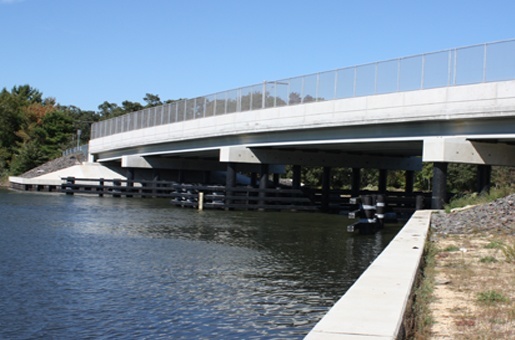


NJDOT – Beach Boulevard Bridge
Deterioration issue with newly constructed Bridge deck
The deck, cast in 2010, was exhibiting severe cracking and premature deterioration.
The specific objectives of the investigation were to identify the cause(s) of the cracking; determine the impact on the remaining useful life; evaluate the performance of the sealer application; and evaluate the effectiveness of different repair scenarios to extend the service life of the bridge deck by 50 years.
Determine the causes of the premature Cracking
SIMCO was hired to investigate the newly-constructed Beach Boulevard bridge deck, located in Ocean County, New Jersey. This bridge is under the jurisdiction of the New Jersey Department of Transportation (NJDOT).
SIMCO’s scope of work consisted in conducting a visual survey, concrete characterization evaluation and numerical calculations using STADIUM® predictive modeling tool.
A field inspection was performed to identify the distinct patterns and characteristics of the cracks. Analyses and numerical calculations were performed to evaluate future chloride ingress in the deck and determine the time to initiate corrosion. It was determined that while under ideal conditions, the use of a coating can delay the onset of corrosion, however, the presence of local defects, such as cracks, chipping and thickness variations could seriously affect its performance over time.
Intervention Strategy
Different repair scenarios were modeled to find the best option to extend the service life. From discussions with the client, asphalt and latex-modified concrete overlays were modeled. Based on the analysis of future chloride diffusion, SIMCO identified the best repair option and provided recommendations to extend the time to corrosion from 8 years originally, to more than 50 years.
Quick Fact
Different repair scenarios were modeled using STADIUM® predictive modeling tool to identify the best options to extend the service life.
